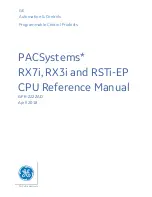
LaserBit LB Series 4.3 page
30
10 System installation
10.1 On the table test
Warning!
Do not look either into the transmitter or the receiver optics because at
this distance even the reflected laser beam
can
be dangerous to your eyes.
Operating the system on much shorter distance than presumed originally can cause
saturation or even permanent damage to the receiver. Always use optical
attenuators for this kind of test.
The on-the-table test needs careful planning and careful use during the test period.
The units should be placed at about 2 m distance from each other with optical
windows facing one another. Put an appropriate optical attenuator (Attenuating foil
or cardboard with several small holes) between the heads. Make all the necessary
connection as described below to connect your network equipment (computer or
protocol analyzer) to the heads and power up the units. Turn ON the Outdoor
Interconnection Units and check if the power LED is ON on the head.
You should be able to align the units without any tool and get full received level on
the signal strength LED’s. Make sure that the “Saturation” indicator is OFF. Adjust
your attenuators if necessary to avoid saturation of the receivers.
Please note that at this short distance, specially the longer distance links can reflect
to the remote site or even to the same head. If you experience full receiving level,
with no traffic throughput, in that case try to move the heads slightly units out of the
reflection zone.
Please also take in consideration that the laser beam is concentrated and in such a
short distance can harm your eyes, every time you test the units on short distance,
do it with extra care. Never look into the sighting device if the remote laser is turned
on. We strongly suggest to double check the power connection before you turn on
the device. Handle the power connection with extra care. Safety first.
After obtaining the desired received level, check the data connection between
devices. Using computers or appropriate testing devices.
On the table tests are perfect for troubleshooting (If there is a transmission problem,
check the status of the connecting devices (e.g. Link signal or cable polarity) and
cables.) in a controlled area. If you experience some problems during the test,
please try to test the connected equipments with a direct connection.
















































